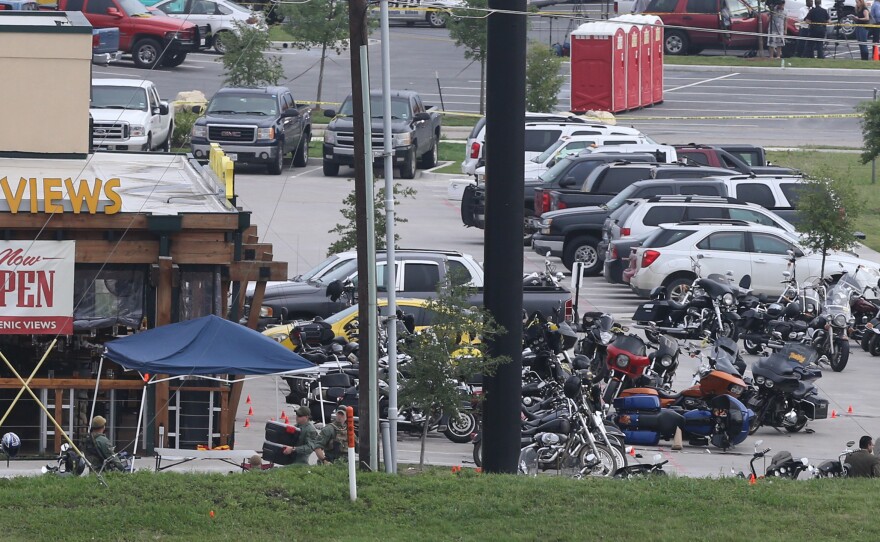The shootout involving motorcycle gangs last weekend in Waco, Texas, resulted in 170 arrests and put a spotlight on the gangs' history, which dates back to the 1940s.
Steve Cook, who heads the Midwest Outlaw Motorcycle Gang Investigators Association, tells NPR's Steve Inskeep that soldiers returning from World War II formed gangs with names like POBOB and the Market Street Commandos. A riot involving these and other biker groups in Hollister, Calif., in 1947 resulted in national attention and the bikers' "outlaw image."
At the time, Cook says, a mainstream motorcycle group dismissed the troublemakers as "1 percent" of the law-abiding biker community. That 1 percent, he says, had a lasting influence.
Indeed, the FBI's National Gang Intelligence Center notes that outlaw motorcycle gangs represent approximately 2.5 percent of all gang members in the U.S. But "law enforcement officials in the US Southwest, Mid-Atlantic, and Northwest regions indicate that [they] present a significant threat.
"However, when asked to identify the top ten worst or most problematic gangs in their respective jurisdictions, survey respondents identified [outlaw motorcycle gangs] first over street and prison gangs higher than their membership numbers would indicate."
Cook credits a man named Sonny Barger for making the outlaw motorcycle gang movement what it is today. Barger organized the Hells Angels early, got the group into crime, and gave them rules and a structure. Cook says Barger formatted "this into almost like a business.
"Other groups formatted their own gangs after them and I think that's why this has continued to flourish even this many years later," Cook says.
Cook says motorcycle gangs are involved in the manufacture and distribution of drugs, as well as motorcycle theft, prostitution and weapons trafficking.
"It pretty much runs the gamut," he says.
Cook, who is himself an active motorcycle rider, also tells Inskeep the gangs are predominantly white, but not as gray as they used to be. That has changed, he says, because many members are veterans who are able to recruit at times of war.
"For a long time, it was a lot of older people, but they have recognized that if they didn't start recruiting they were going to die off," he says. "And so they have started huge youth movements. And of course you know any time we have any kind of military conflict, you have an explosion in motorcycle gang activity because you have a lot of individuals that are affiliated with these groups that are active duty, they get deployed, they meet like-minded people, and they recruit."
The FBI also notes that several gangs "are actively recruiting from the military for new members."
Copyright 2015 NPR. To see more, visit http://www.npr.org/.






